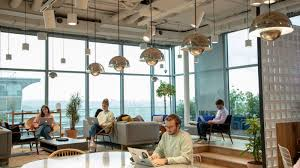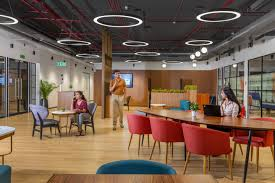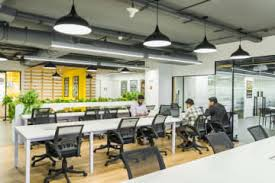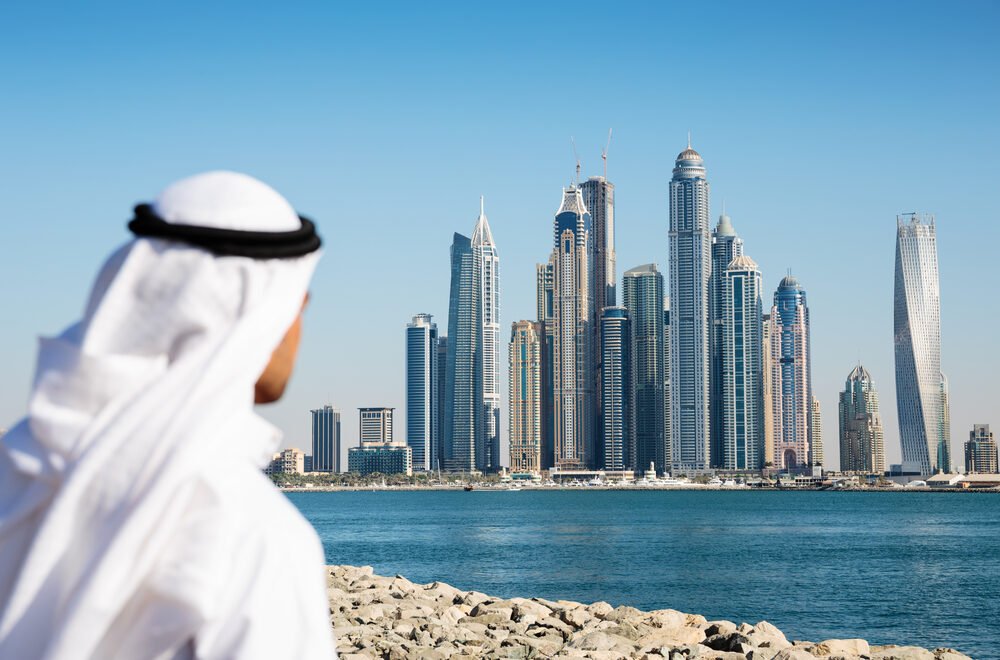Now Reading: 7 Co‑Working and Residential Hybrid Projects Launching
-
01
7 Co‑Working and Residential Hybrid Projects Launching
7 Co‑Working and Residential Hybrid Projects Launching

Table of Contents
Dubai’s real estate market is embracing a new wave of co‑working and residential hybrid developments—spaces that integrate living, working, and socialising in one dynamic environment. Especially in 2025, seven standout projects are shaping the future of flexible, community-driven living.
1. i8 Hotel, Dubai Internet City

Overview:
Opened by Arbah Capital and Strategic Housing Group, i8 Hotel is the GCC’s first fully integrated co‑living and hotel hybrid. Located in Dubai Internet City, it blends 256 rooms with shared kitchens, laundry, fitness centres, and co‑working lounges. The concept targets digital nomads, start-up teams, and long‑stay travellers who seek flexibility and community.
Why it matters:
By merging short‑term hotel stays with long‑term leases, i8 introduces a hybrid living model that caters to evolving professional lifestyles—offering convenience without long‑term commitment.
2. SOL Levante, Jumeirah Village Triangle
Overview:
Developed by SOL Properties, SOL Levante is a mixed‑use complex featuring 612 residential units alongside co‑working spaces, a gym, mini‑golf, and outdoor cinema. Situated in JVT, this project provides panoramic marina views and diverse lifestyle options.
Why it matters:
This development caters to residents seeking an all‑in‑one lifestyle—combining home and office infrastructure in a vibrant, amenity-rich setting.
3. The Cube Residences, Mohammed bin Rashid City
Overview:
The Cube Residences by AMWAJ Developers offer 54 smart, fully-furnished apartments with modular living systems. Amenities include concierge services, a coworking lounge, rooftop pool, gaming room, and sauna—all built into the Q4 2026 delivery timeline.
Why it matters:
Targeted at young professionals and digital nomads, this compact, tech-driven concept brings convenience and community to central Dubai.
4. SkyHills Astra, Al Barsha South
Overview:
SkyHills Astra by HRE Development in Dubai Science Park blends residential living with extensive co‑working and wellness zones. Amenities include fitness gyms, running tracks, yoga decks, and landscaped lounge spaces—all engineered for holistic wellbeing.
Why it matters:
This model responds to a growing desire for work‑life balance, offering residents a live‑work environment with health‑focused communal zones.
5. Burj Binghatti Jacob & Co Residences, Business Bay
Overview:
Set to become the world’s tallest residential tower at 557 m with 104 floors, Burj Binghatti Jacob & Co in Business Bay features high-end residences along with shared lounge areas, rooftop hospitality suites, and coworking facilities.
Why it matters:
This landmark tower combines ultra-luxury living with co‑working possibilities—ideal for high-net-worth professionals looking for prestige and convenience.
6. Ciel Dubai Marina
Overview:
Ciel Dubai Marina, scheduled to open by late 2025, is an 82-floor skyscraper offering over 1,000 rooms and suites, energy-efficient systems, and rooftop amenities. It includes co‑working lounges, event spaces, and fitness resources.
Why it matters:
This project positions itself as a hospitality-led residential option, catering to professionals seeking hotel-style living with workspace access.
7. Dubai Design District (D3) — Co-Living Redevelopment

Overview:
Dubai Design District (D3) is expanding beyond commercial zones into co-living realms—planned residential towers with integrated co-working cafés, studios, and workshop spaces designed for creatives.
Why it matters:
By blending studio, living, and workspace in a cultural hub, D3 attracts professionals in design and tech seeking live-work environments.
Why Hybrid Living Matters in 2025
1. Flexibility for Modern Lifestyles
These hybrids cater to diverse living needs—short-term stays, remote work, and flexible leases—making them ideal for entrepreneurs, freelancers, and mobile professionals.
2. Built‑in Community and Networking
Shared zones (co-working lounges, kitchens, fitness studios) foster networking and collaboration, reducing isolation and enhancing productivity.
3. All-in-One Convenience
Design-led developments like The Cube and SkyHills Astra remove barriers—furniture, utilities, maintenance, and community are included in cohesive monthly fees.
4. Work-Life Sustainability
By integrating wellness, fitness, and leisure with work functions, these projects support healthier lifestyles and reduce commuting stress.
5. Investment Appeal
Hybrid models offer strong rental demand from short-term corporate tenants, digital nomads, and expats seeking both living and workspace.
Market Response and Expert Insight
Iurii Nemtcev, CEO of Big Lab Digital Agency, notes that hybrid concepts are becoming standard in luxury real estate. He points out that investors and buyers now prefer properties offering both managed rental services and lifestyle flexibility. Dubai Land Department data shows luxury property demand grew 30.2% in 2024, with many such hybrid projects fueling interest.
Challenges Ahead

Despite their appeal, these hybrids face regulatory and design challenges:
- Regulatory Standards: With blurred hotel-home models, authorities must define zoning, safety codes, and minimum stay guidelines.
- Privacy vs. Community Balance: Designers must create deep communal experiences without sacrificing personal space.
- Operational Quality: Reliable management is critical—flexi-living demands hospitality-level service, cleanliness, and tech support.
What’s Next
In 2025 and beyond, expect to see:
- More Hospitality-integrated Residential Models opening across Dubai.
- Creative-focused Live-Work Hubs in D3 and Media City catering to designers and technologists.
- Regulatory Frameworks evolving to support mixed-use occupancy and flexible lifestyle living.
Conclusion
Dubai’s 2025 real estate landscape is rapidly shifting toward co-working and residential hybrid spaces, marrying functionality, flexibility, and community. The seven highlighted projects—i8 Hotel, SOL Levante, The Cube, SkyHills Astra, Burj Binghatti, Ciel Marina, and D3 co-living—illustrate a broader trend: developers adapting to the evolving needs of young professionals and entrepreneurs.
These are not just properties; they are lifestyle ecosystems offering work, relaxation, and social connectivity under one roof. As Dubai evolves into a global hub for innovation, these hybrid spaces will play a foundational role in attracting a new generation of residents and investors. Co-working and residential






















